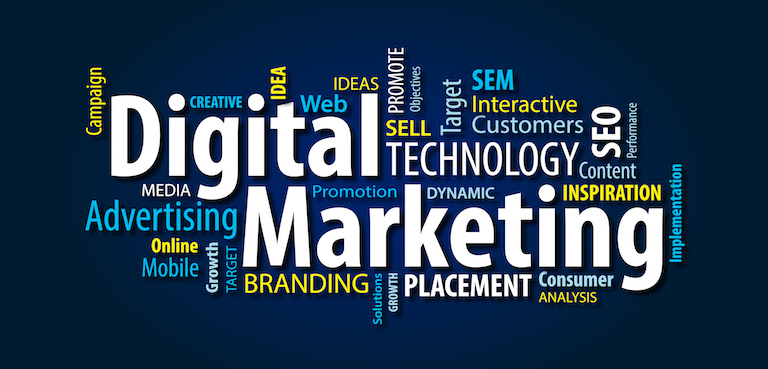As a marketing professional, your daily life is a whirlwind of tasks, projects, and opportunities. It’s easy to fall into the trap of saying “yes” to everything that comes your way, hoping to seize every chance for success. However, learning to say “no” can be one of the most valuable skills in your toolkit. In this article, we’ll explore 25 benefits of saying no as a marketing professional, backed by real-world examples.
Here are the details of 25 Benefits of Saying No as a Marketing Professional
1. Focusing on Core Objectives
Saying no helps you stay focused on your primary marketing objectives. For instance, if you’re launching a new product, saying no to unrelated projects ensures you dedicate your resources to the product’s success.
2. Efficient Resource Allocation
By declining non-essential tasks, you allocate your time, budget, and energy more efficiently. Imagine saying no to additional design work when your graphics team is already swamped.
3. Improved Time Management
Saying no to time-consuming or low-priority tasks enables better time management. You can devote more time to crucial activities like market research or campaign analysis.
4. Avoiding Burnout
Overcommitting can lead to burnout. Saying no when your schedule is packed can help prevent exhaustion and maintain your productivity.
5. Quality Over Quantity
Prioritizing quality over quantity often means saying no to quick, shallow projects in favor of those with long-term benefits. For instance, focusing on building a strong brand rather than chasing short-term gains.
6. Enhanced Creativity
By reducing unnecessary work, you can nurture your creativity. Saying no to distractions allows your mind to explore innovative marketing strategies.
7. Better Work-Life Balance
Learning to say no ensures a healthier work-life balance. Rejecting extra hours at the office in favor of personal time can improve your overall well-being.
8. Increased Productivity
Saying no to interruptions or unnecessary meetings can boost your productivity. Imagine how much more you could achieve with uninterrupted work time.
9. Maintaining Brand Integrity
Rejecting projects that compromise your brand’s integrity is crucial. Saying no to partnerships or campaigns that don’t align with your brand’s values protects its reputation.
10. Setting Boundaries
Saying no establishes boundaries with clients, colleagues, and superiors. This helps create a more respectful and sustainable work environment.
11. Strengthening Client Relationships
Politely declining projects you can’t excel in showcases your commitment to quality. Clients will appreciate your honesty and may return for future collaborations.
12. Avoiding Unprofitable Ventures
Saying no to low-profit or high-risk opportunities protects your bottom line. For instance, rejecting a project with inadequate compensation can save you time and resources.
13. Enhancing Decision-Making
By learning to say no, you become a more discerning decision-maker. You assess opportunities more critically, ensuring they align with your marketing goals.
14. Prioritizing Personal Growth
Saying no to stagnation means embracing opportunities for personal growth. This could include turning down repetitive tasks in favor of challenging assignments.
15. Adapting to Market Changes
Agile marketing professionals say no to outdated strategies and embrace new trends. This adaptability is essential in today’s rapidly changing landscape.
16. Developing a Stronger Team
Saying no can lead to better team dynamics. Rejecting unrealistic expectations helps set achievable goals for your marketing team.
17. Respecting Your Expertise
Saying no acknowledges your expertise. It’s better to refuse a project you’re not skilled in than to deliver subpar results.
18. Avoiding Overcommitment
Overcommitting can lead to missed deadlines and poor-quality work. Saying no when your plate is full ensures you meet your commitments.
19. Reducing Stress
A lighter workload from saying no can significantly reduce stress levels. This leads to a more relaxed and creative mindset.
20. Demonstrating Professionalism
A professional marketer knows when to say no. It’s a sign of maturity and a commitment to ethical business practices.
21. Encouraging Innovation
Saying no to the status quo encourages innovation. Rejecting outdated strategies forces you to seek fresh, creative solutions.
22. Minimizing Risks
Saying no can protect your company from legal or ethical risks. For example, declining a marketing campaign that could infringe on copyrights.
23. Boosting Confidence
Successfully saying no boosts your confidence. It shows you have the conviction to stand by your decisions.
24. Adapting to Market Demands
Saying no can help you pivot when market demands change. You can redirect resources to meet new consumer needs.
25. Achieving Long-Term Success
Ultimately, saying no is a key factor in achieving long-term success. It allows you to navigate your marketing career strategically, ensuring growth and sustainability.
Conclusion
In the world of marketing, saying no is not a limitation but a powerful tool for success. By learning to decline opportunities that don’t align with your goals, you can efficiently allocate resources, maintain quality, and foster innovation. Saying no as a marketing professional is the path to a more focused, rewarding, and ultimately successful career.





